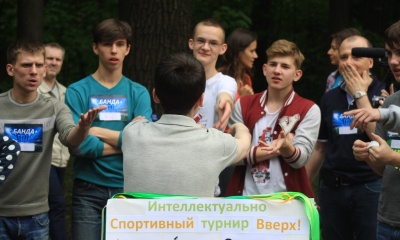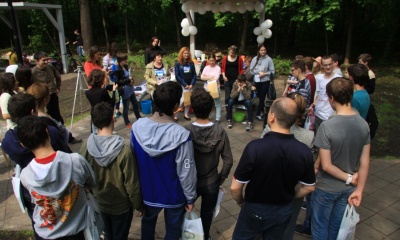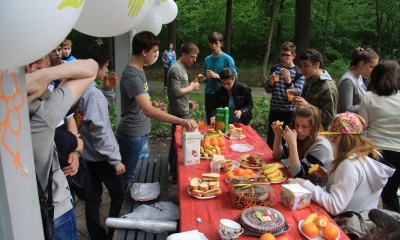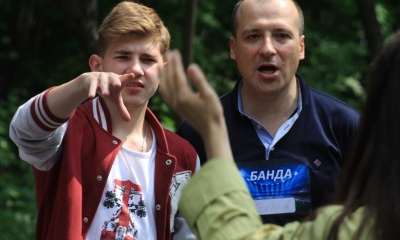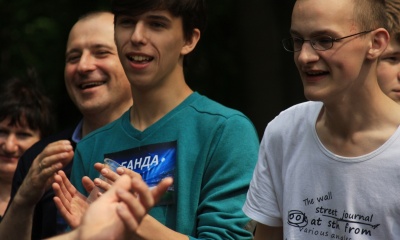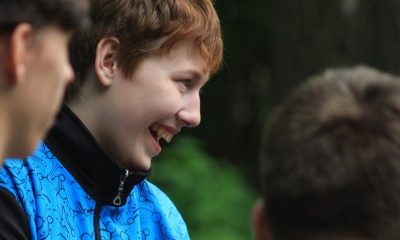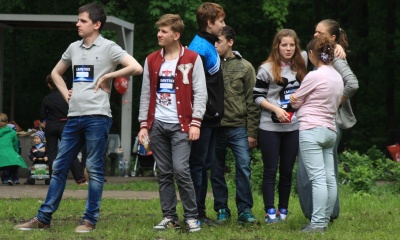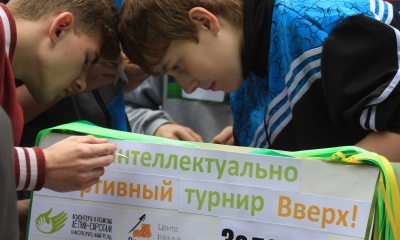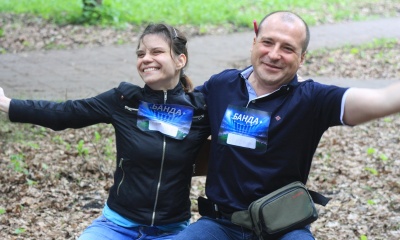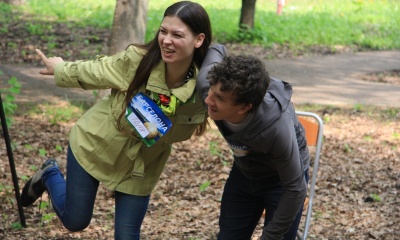Meeting students from the Zaprudnensky residential institution
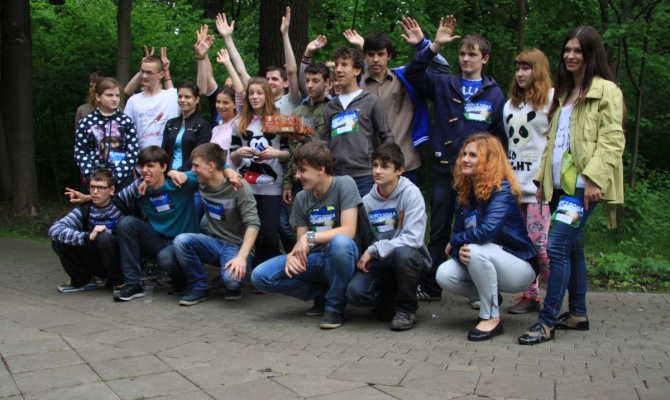
The Step Up Orphan Opportunity Centre and the Volunteers helping child-orphans Foundation began their distance learning project over a year ago now. As part of the project, Step Up teachers lead various lessons over Skype for students at different orphanages near Moscow.
On 24th May at Ostankino park we celebrated the end of our first year of distance learning with students from the Zaprudnensky specialised residential institution. Students spent time with their teachers, volunteer friends and students from the Step Up Centre. Together we took part in competitions which had been organised by volunteers from the Volunteers helping child-orphans Foundation. We also received books as gifts and certificates to celebrate successfully finishing the school year.
Darya Tarayan, who teaches Russian language to these students, told us her views on the distance learning project:
Teaching students from correctional institutions has taught me a lot of important things.
Firstly, don’t shy away from the troubles that others bump into. There will be a cocktail of guilt and fear the first time you meet someone with an obviously unequal background to you. I remember when I was preparing the books for our first lesson and I was worried that there would be something about family, parents or a happy childhood. In general, the error is to simply not look at a disabled person – as though if I don’t notice that he is missing a leg, he will also stop seeing it… or the leg will grow. No.
Secondly, I had to master the art of taking small steps. When you get 40 minutes a week on Skype with a year 8 pupil who does not know how to add up to ten or doesn’t know a verb from a noun, then you can only go over everything and fill in the gaps from their pre-school education. Encouraging this pre-school level learning in a year 8 doesn’t harm their teenage-ness, their boyhood/girlhood or their personality. And very small steps don’t necessarily mean short ones. It’s an ambitious task: you have to come up with new worlds, create conceptions and make associations. Start at the beginning. And in conclusion: where my technique is powerful, my creativity can do something else.
Thirdly, I have expanded (or formed?) a view of the result and how to grade it. A year 8 pupil, who couldn’t do so before, learned how to write the word “woman” without any spelling errors – that is the result of the lesson. A year 7 pupil liked a fairy tale about honesty and she remembered it and retold it to me and all her friends – that, for me, is a great result of all of our Thursdays together. She quickly and easily found the answer to the question posed to her by a boy from the orphanage: “And what do you normally feed your child?” – I can’t even find the words to describe how valuable this result is to me.
And what’s more, I’m not exaggerating – I think that teaching Russian is such a great happiness. There are so many opportunities for my subject, opening doors and windows in life – I never get tired of being surprised.
See you all next academic year!
Here are some photos showing you how the celebration was.
